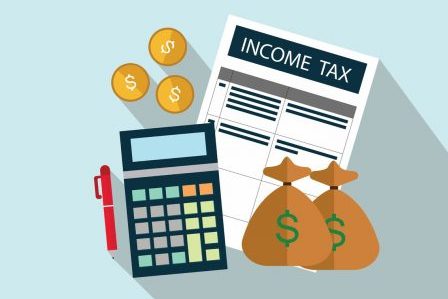
Residence and source
If a taxpayer is a resident of Australia, the taxpayer’s assessable income includes all ordinary income and all statutory income from all sources, whether in or out of Australia (ITAA97 s 6-5(2); 6-10(4)). However, if the taxpayer is a foreign resident, the taxpayer’s assessable income includes only ordinary income and statutory income from all sources in Australia, plus certain other amounts that are not dependent on an Australian source (eg the capital gain on the disposal of certain assets regardless of the source of the amounts received) (s 6-5(3); 6-10(5)). Thus, it is particularly important to determine both the residence of a taxpayer and the source of income (¶21-000).
Taxable income
The tax base on which the tax is imposed is “taxable income” (¶10-000). Taxable income is arrived at in the following way (ITAA97 s 4-15(1)):
taxable income = assessable income − deductions
Assessable income
Assessable income consists of income according to ordinary concepts (“ordinary income”) and other amounts that are included in assessable income under provisions of ITAA36 or ITAA97 (“statutory income”) (ITAA97 s 6-5; 6-10: ¶10-010). Statutory income includes net capital gains (ITAA97 s 102-5). There is no definition of the word “income” in either ITAA36 or ITAA97 and it is therefore necessary to look to the accepted usage of this word to establish its meaning. Assessable income does not include exempt income or non-assessable non-exempt income.
Exempt income
Exempt income consists of amounts that, although received as income and otherwise taxable, are expressly or implicitly made exempt from income tax (ITAA97 s 6-20: ¶10-600).
Non-assessable non-exempt income
Non-assessable non-exempt income is ordinary or statutory income that is expressly made neither assessable income or exempt income (ITAA97 s 6-23: ¶10-895).
Deductions
There are two types of deduction:
(1) a general deduction — this is any loss or outgoing to the extent that it is incurred in gaining or producing assessable income or is necessarily incurred in carrying on a business for the purpose of gaining or producing assessable income (ITAA97 s 8-1(1): ¶16-010), and
(2) a specific deduction — this is an amount that is deductible under any other provision of ITAA36 or ITAA97 (ITAA97 s 8-5).
In general, personal expenses and capital expenditure are not deductible. However, there are various important exceptions, eg a deduction is allowed for depreciating assets (¶17-015) and for expenditure on capital works (¶20-470).
Offsets
In certain cases, an offset (ie a credit or a rebate) is available rather than a deduction for expenditure (¶15-005). An offset is an amount that is to be subtracted from the tax otherwise payable. It does not enter into the calculation of taxable income. Thus, an offset reduces a taxpayer’s tax by the dollar amount of the offset, whereas a deduction only reduces tax by the amount of the deduction multiplied by the taxpayer’s tax rate.


